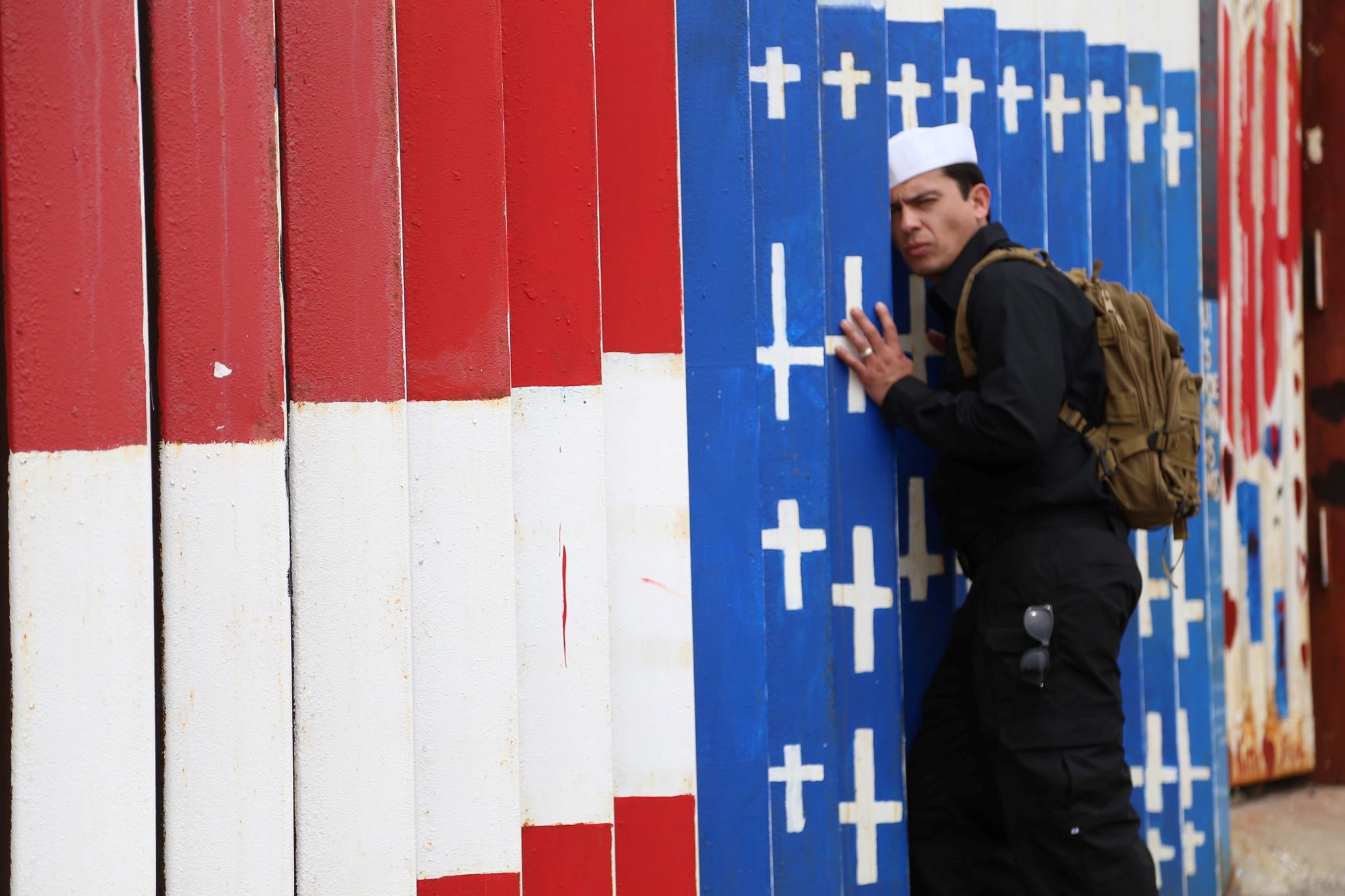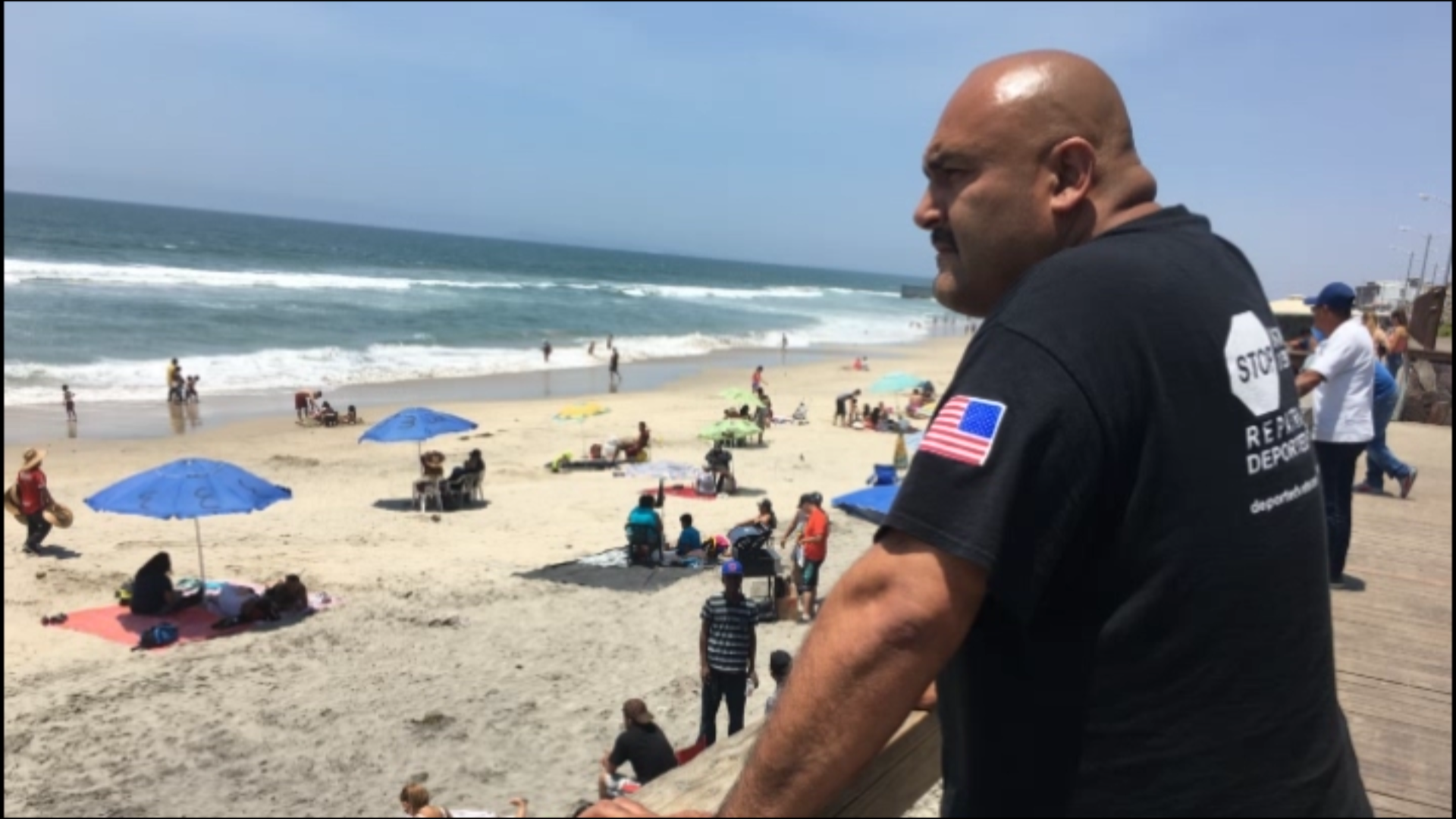Deportation of Military Veterans
By Robert McKee Irwin and Lizbeth De La Cruz
Problem
Since the passage of the Illegal Immigration Reform and Immigrant Responsibility Act in 1996, the United States has deported thousands of non-citizen military veterans. These veterans are generally childhood arrivals to the United States with legal permanent resident status, who have a criminal record. Homeland Security, through programs such as Secure Communities, has actively sought to deport all permanent residents with records making them eligible for deportation, without considering other factors, including their record of patriotism and service to the country. Veterans who have been honorably discharged, even those who have defended the country in high risk military combat, continue to be routinely deported.
Solution
Those who have served in the US military should be considered for deportation only under exceptional circumstances. And when deportation cases of military veterans are brought to immigration court, past military service should be taken into account as a factor that would give judges leeway in granting clemency.
Observations
The cases of individual deported veterans help to illustrate the extreme harshness of contemporary immigration law.

Alex Murillo was brought to the US by his parents when he was about one year old. Raised in Phoenix, his identity is entirely US American. As he points out: “all my thoughts and memories are [those] of an American kid.” While enlisted in the Navy as a legal permanent resident, he served in Israel and Abu Dhabi, and “never stopped being faithful to America.” In 2008, Alex was convicted in federal court of marijuana possession and expected to be released to a halfway house after serving a year and a half of a 37 month sentence in a minimum security prison camp for nonviolent offenders. However, prior to his release, his case was flagged for deportation due to his non-citizen status. He served out his full sentence in a federal penitentiary, after which he was deported, with no consideration made for his military service. Alex left behind four children who depended on him and were waiting anxiously for his release from prison, and who have been traumatized by the loss of their father.
In his two part digital story, “American Soldiers in Exile” Alex recounts that upon being deported to Nogales, Sonora, he was contacted by a criminal syndicate that, aware of his military experience, tried to recruit him to their ranks. He fled to Rosarito, Baja California, where he has not been harassed. Drawing on his experience as a high school quarterback, he coaches local high school sports teams, including a highly successful girl’s flag football team. He also volunteers with the Unified US Deported Veterans Resource Center and continues to lobby for support for legal reform to stop the deportation of military veterans and to bring deported veterans back home. Alex can’t understand why he was “good enough to fight and die for America, but I’m not good enough to live there.”

Jason Madrid also came to the US as a small child, obtaining legal permanent residency. He grew up in a rough neighborhood, and as a young adult chose to sign up for the Marines. The recruitment officer told him that by enlisting he would become a citizen. He enjoyed his experience in the Marines: “it was the best time in my life; I learned a lot of new things.” Eventually his unit was deployed to Saudi Arabia, where he engaged in combat as part of Operation Desert Fox. This was exciting: “I joined the Marine Corps […] because I wanted to see action, I wanted to be on the front line.” But once he found himself engaged in battle, where he was told “basically, it’s you or them,” he was shaken, “you think about it, you know, and you just … I have no words.”
Once he left the Marines, Jason returned to his mother’s house unsure of what to do with himself: “I needed to be in the Marine Corps. I didn’t know anything about civilian life.” He recalls: “according to my mother and to my brother, I would wake up at different hours of the night, yelling and screaming, getting into my uniform, ironing my uniform standing in attention.” Clearly suffering from post traumatic stress disorder, he ended up turning to drugs and alcohol to deal with his anxiety and confusion, eventually getting arrested and sentenced to prison. “I said, ‘OK, I can do that.’” However, when he was about to be released, he was surprised to learn that he was being turned over to ICE for deportation. He was shocked because he had never imagined that his permanent residency was not “permanent,” a paradox he addresses in his digital story “Permanent Residence? The Story of a US Marine Vet.” Moreover, Jason was confused about not having become a citizen as he had been promised by his recruitment officer. Later he would learn from Héctor Barajas of the Deported Veterans Support House in Tijuana that citizenship is automatically awarded only to veterans involved in war combat; since Desert Fox was technically only a military “conflict” and not a formally declared war, his participation did not guarantee him citizenship. Jason has not allowed deportation to destroy him, as he has seen happen to many other deported migrants, finding employment as a municipal police officer in Tijuana. However, he has been unable to adapt to life in Mexico, explaining: “I respect the Mexican flag, but it is not my flag; my flag is the United States – that is what I fought for.”
Paradoxically, the US military does honor its own, offering military burials even for veterans who have been deported by Homeland Security. This point is made eloquently by activist Héctor López who tells the stories of two deported veterans, Alfredo Varón and Enrique Salas, both of whom ended up with life threatening medical conditions in Mexico, one due to a botched surgery, the other due to a traffic accident, in “Two Soldiers Left Behind.” While neither was able to successfully fight his deportation, both were eventually given humanitarian visas to allow them to get medical attention in the United States. However, both veterans died before they could be treated. Both were buried “with full military honors,” but both might have gotten the critical medical attention needed in time to survive had they not been deported.
As another deported veteran Alex Gómez eloquently puts it: “My God, we […] were willing to go any time, any place, anywhere in the world and fight for truth, liberty and justice, and now look at the justice we’re receiving.”
